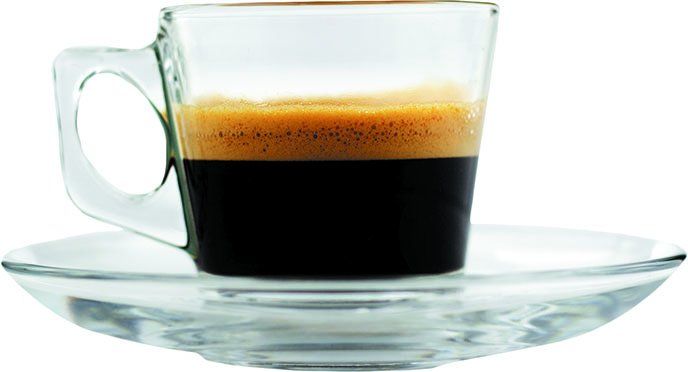Image © Thinkstock

After the fourth espresso, maybe it’s time to switch to decaf. That’s the message from European Union (EU) food-safety regulators, who for the first time recommended that adults should keep their daily caffeine intake below 400 milligrams. Four standard espressos (or two and a half Starbucks venti lattes) would add up to about that much, but regulators are actually more concerned about less-traditional sources of caffeine, including colas and energy drinks. The findings were similar to the recent Dietary Guidelines Advisory Committee report. An EU spokesperson said, “The main message of the report is that consumers must account for caffeine consumption from sources other than coffee. The health risk is not enormous, but it exists.”
For most adults, the report concluded, there are no safety concerns from caffeine intake from all sources up to 400 milligrams daily. Pregnant women should not exceed 200 milligrams daily, and youths under age 18 should limit intake to 3 milligrams per kilogram of weight (1.36 milligrams per pound). Among 13 EU countries studied, Denmark had the highest caffeine consumption, with 33% of consumers exceeding the 400-milligram limit; in France, despite its caf culture, only 5.8% topped that mark.
Home-brewed coffee contains about 12 milligrams of caffeine per ounce, or 96 in a typical 8-ounce cup. Energy drinks can vary from 40 to 90 milligrams per serving.





















